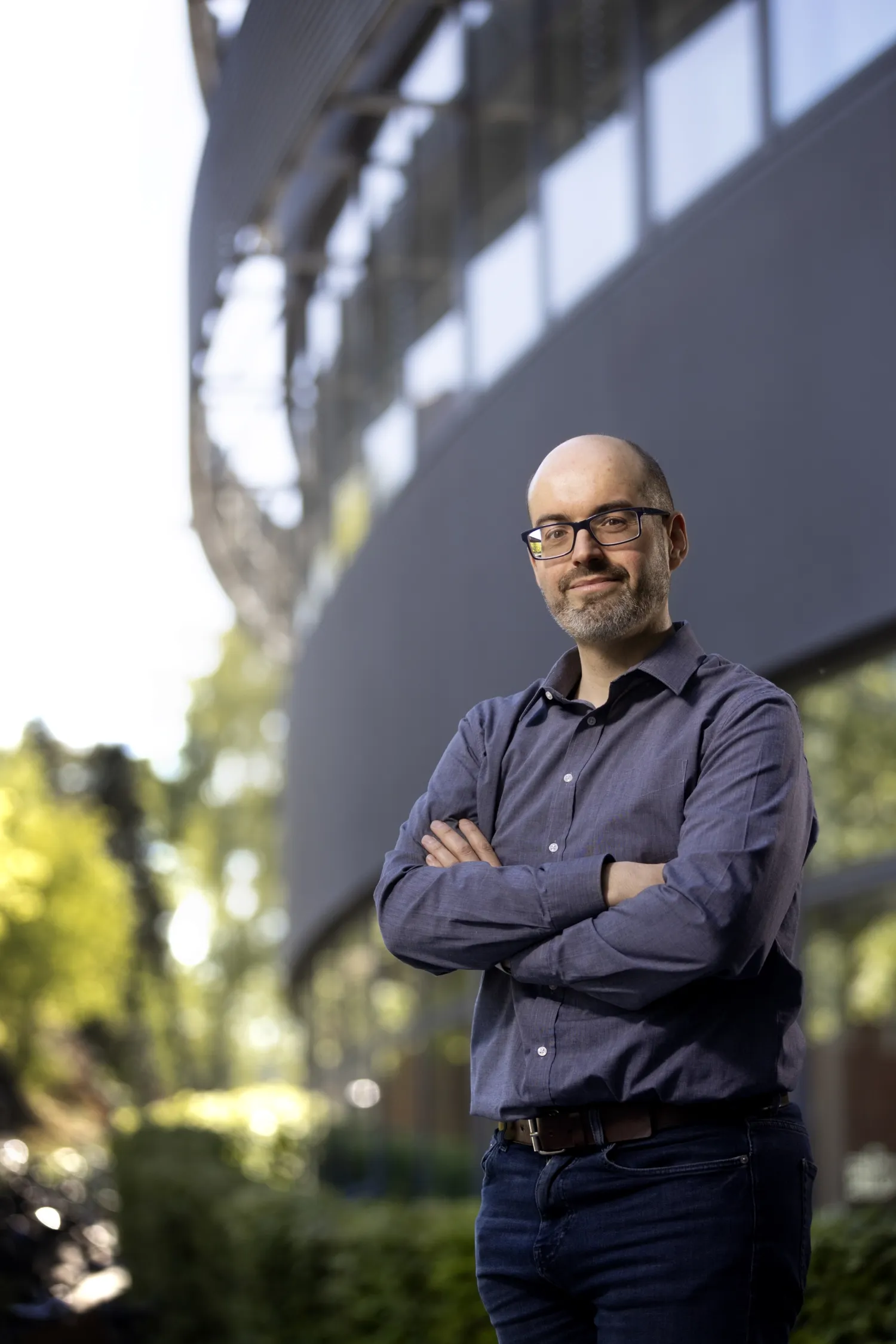RNA is central to how cells function. Through the detailed study of RNA that combines molecular biology with advanced bioinformatics, Vicente Pelechano Garcia hopes to contribute to the development of a new generation of RNA-based treatment and diagnosis. Meet one of the new professors of Karolinska Institutet who will participate in this year's installation ceremony at Aula Medica on 9 October.
Text: Karin Tideström, for KI's installation ceremony booklet 2025
What are you researching?
"My research focuses on understanding how RNA - the molecule that helps turn genetic information into proteins - controls the behaviour of cells. Every cell in our body contains the same DNA, but what makes cells different is how that DNA is read and interpreted. RNA plays a central role in this process, carrying instructions from the DNA to the cell's protein-making machinery. In our lab, we study how RNA is made, processed, used and degraded, and how these processes affect everything from how cancer cells behave to the development of antibiotic resistance."

Why is this important?
"If something goes wrong with RNA - if it is made incorrectly, processed in the wrong way, or degraded too quickly or too slowly - it can have serious consequences. Understanding RNA biology is therefore essential for designing better diagnostics and new treatments. The COVID-19 pandemic showed just how powerful mRNA vaccines can be as a medical tool."
How are you going about this?
"We're combining molecular biology with sequencing-based methods and advanced bioinformatics to study RNA at a detailed level. These techniques allow us to track RNA molecules from the moment they're made to the moment they're degraded, and to see how they're being used and regulated under different conditions, such as when bacteria become resistant to antibiotics or cancer cells to treatment."
What do you hope to achieve?
"We want our research to generate knowledge about the fundamental principles of life and to inspire practical applications. In the long run, we hope to contribute to a new generation of RNA-based diagnostics and treatments that can change how we treat many different diseases."
About Vicente Pelechano Garcia
Professor of RNA Biology at the Department of Microbiology, Tumor and Cell Biology
Vicente Pelechano Garcia was born in 1980 in Spain. He earned an undergraduate degree in Biochemistry in 2003 and a PhD in Molecular Biology in 2009 at the University of Valencia, Spain. After performing his postdoctoral work at the European Molecular Biology Laboratory (EMBL) in Germany, he joined Karolinska Institutet as SciLifeLab Fellow and Assistant Professor in 2016. Vicent Pelechano Garcia was appointed Professor at Karolinska Institutet on 1 May 2025.






